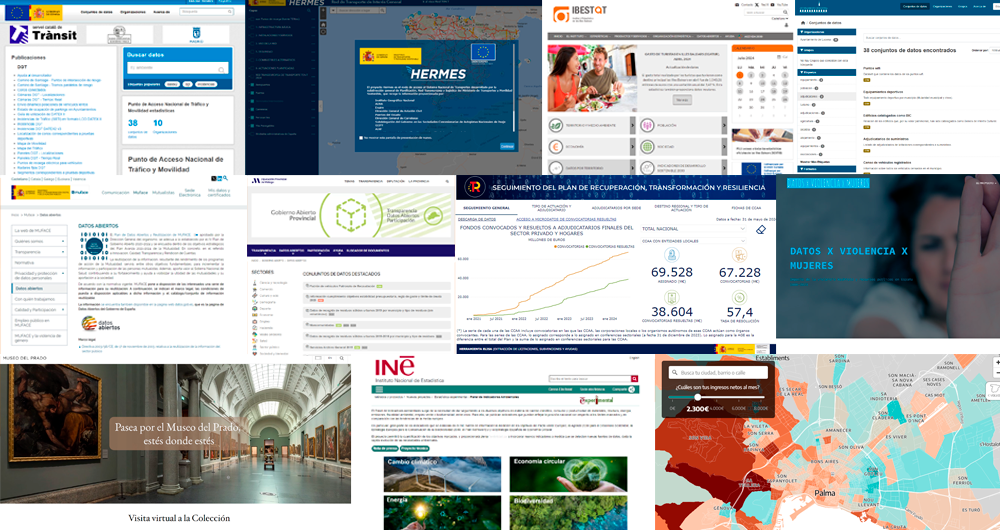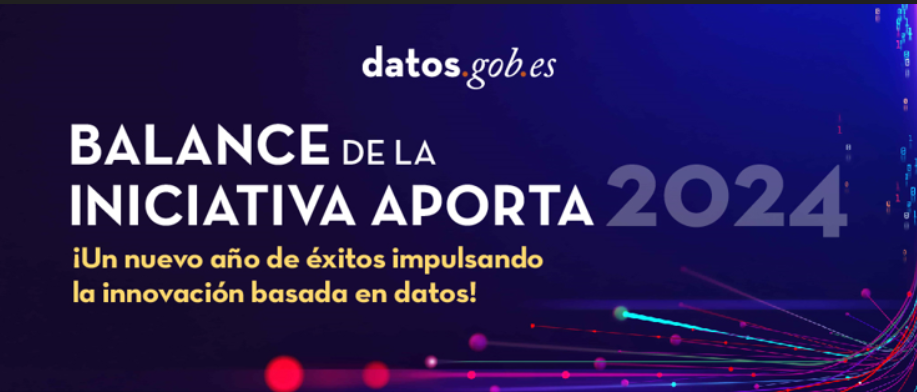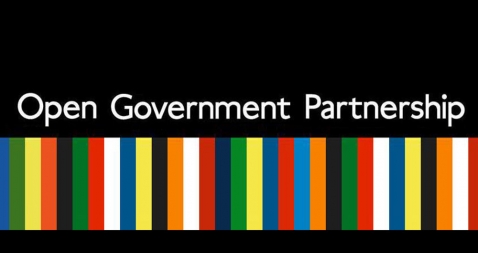Data ecosystem developments in Spain: second half of 2024
Fecha de la noticia: 30-12-2024

Researchers and students from various centers have also reported advances resulting from working with data:The last days of the year are always a good time to look back and assess the progress made. If a few weeks ago we took stock of what happened in the Aporta initiative, now it is time to compile the news related to data sharing, open data and the technologies linked to them.
Six months ago, we already made a first collection of milestones in the sector. On this occasion, we will summarise some of the innovations, improvements and achievements of the last half of the year.
Regulating and driving artificial intelligence
La inteligencia artificial (IA) continúa siendo uno de los campos donde cada día se aprecian nuevos avances. Se trata de un sector cuyo auge es relativamente nuevo y que necesita regulación. Por ello, la Unión Europea publicó el pasado julio el Reglamento de inteligencia artificial, una norma que marcará el entorno regulatorio europeo y global. Alineada con Europa, España ya presentó unos meses antes su nueva Estrategia de inteligencia artificial 2024, con el fin de establecer un marco para acelerar el desarrollo y expansión de la IA en España.
Artificial intelligence (AI) continues to be one of the fields where new advances are being made every day. This is a relatively new and booming sector in need of regulation. Therefore, last July, the European Union published the Artificial Intelligence Regulation, a standard that will shape the European and global regulatory environment. Aligned with Europe, Spain had already presented its new Artificial Intelligence Strategy 2024 a few months earlier, with the aim of establishing a framework to accelerate the development and expansion of AI in Spain.
On the other hand, in October, Spain took over the co-presidency of the Open Government Partnership. Its roadmap includes promoting innovative ideas, taking advantage of the opportunities offered by open data and artificial intelligence. As part of the position, Spain will host the next OGP World Summit in Vitoria.
Innovative new data-driven tools
Data drives a host of disruptive technological tools that can generate benefits for all citizens. Some of those launched by public bodies in recent months include:
- The Ministry of Transport and Sustainable Mobility has started to use Big Data technology to analyse road traffic and improve investments and road safety.
- The Principality of Asturias announces a plan to use Artificial Intelligence to end traffic jams during the summer, through the development of a digital twin.
- The Government of Aragon presented a new tourism intelligence system, which uses Big Data and AI to improve decision-making in the sector.
- The Region of Murcia has launched “Murcia Business Insight”, a business intelligence application that allows dynamic analysis of data on the region's companies: turnover, employment, location, sector of activity, etc.
- The Granada City Council has used Artificial Intelligence to improve sewerage. The aim is to achieve "more efficient" maintenance planning and execution, with on-site data.
- The Segovia City Council and Visa have signed a collaboration agreement to develop an online tool with real, aggregated and anonymous data on the spending patterns of foreign Visa cardholders in the capital. This initiative will provide relevant information to help tailor strategies to promote international tourism.
Researchers and students from various centers have also reported advances resulting from working with data:
- Researchers from the Center for Genomic Regulation (CRG) in Barcelona, the University of the Basque Country (UPV/EHU), the Donostia International Physics Center (DIPC) and the Fundación Biofísica Bizkaia have trained an algorithm to detect tissue alterations in the early stages and improve cancer diagnosis.
- Researchers from the Spanish National Research Council (CSIC) and KIDO Dynamics have launched a project to extract metadata from mobile antennas to understand the flow of people in natural landscapes. The objective is to identify and monitor the impact of tourism.
- A student at the University of Valladolid (UVa) has designed a project to improve the management and analysis of forest ecosystems in Spain at the local level, by converting municipal boundaries into a linked open data format. The results are available for re-use.
Advances in data spaces
The Ministry for Digital Transformation and the Civil Service and, specifically, the Secretariat of State for Digitalisation and Artificial Intelligence continues to make progress in the implementation of data spaces, through various actions:
- A Plan for the Promotion of Sectoral Data Spaces has been presented to promote secure data sharing.
- The development of Data Spaces for Intelligent Urban Infrastructures (EDINT) has been launched. This project, which will be carried out through the Spanish Federation of Municipalities and Provinces (FEMP), contemplates the creation of a multi-sectoral data space that will bring together all the information collected by local entities.
- In the field of digitalisation, aid has been launched for the digital transformation of strategic productive sectors through the development of technological products and services for data spaces.
Functionalities that bring data closer to reusers
The open data platforms of the various agencies have also introduced new developments, as new datasets, functionalities, strategies or reports:
- The Ministry for Ecological Transition and the Demographic Challenge has launched a new application for viewing the National Air Quality Index (AQI) in real time. It includes health recommendations for the general population and the sensitive population.
- The Andalusian Government has published a "Guide for the design of Public Policy Pilot Studies". It proposes a methodology for designing pilot studies and a system for collecting evidence for decision-making.
- The Government of Catalonia has initiated steps to implement a new data governance model that will improve relations with citizens and companies.
- The Madrid City Council is implementing a new 3D cartography and thermal map. In the Blog IDEE (Spatial Data Infrastructure of Spain) they explain how this 3D model of the capital was created using various data capture technologies.
- The Canary Islands Statistics Institute (ISTAC) has published 6,527 thematic maps with labor indicators on the Canary Islands in its open data catalog.
- Open Data Initiative and the Democratic Union of Pensioners and Retirees of Spain, with support from the Ministry of Social Rights, Consumption and Agenda 2030, presented the first Data website of the Data Observatory x Seniors. Its aim is to facilitate the analysis of healthy ageing in Spain and strategic decision-making. The Barcelona Initiative also launched a challenge to identify 50 datasets related to healthy ageing, a project supported by the Barcelona Provincial Council.
- The Centre for Technological Development and Innovation (CDTI) has presented a dashboard in beta phase with open data in exploitable format.
In addition, work continues to promote the opening up of data from various institutions:
- Asedie and the King Juan Carlos University (Madrid) have launched the Open Data Reuse Observatory to promote the reuse of open data. It already has the commitment of the Madrid City Council and they are looking for more institutions to join their Manifesto.
- The Cabildo of Tenerife and the University of La Laguna have developed a Sustainable Mobility Strategy in the Macizo de Anaga Biosphere Reserve. The aim is to obtain real-time data in order to take measures adapted to demand.
Data competitions and events to encourage the use of open data
Summer was the time chosen by various public bodies to launch competitions for products and/or services based on open data. This is the case of:
- The Community of Madrid held DATAMAD 2024 at the Universidad Rey Juan Carlos de Madrid. The event included a workshop on how to reuse open data and a datathon.
- More than 200 students registered for the I Malackathon, organised by the University of Malaga, a competition that awarded projects that used open data to propose solutions for water resource management.
- The Junta de Castilla y León held the VIII Open Data Competition, whose winners were announced in November.
- The II UniversiData Datathon was also launched. 16 finalists have been selected. The winners will be announced on 13 February 2025.
- The Cabildo of Tenerife also organised its I Open Data Competition: Ideas for reuse. They are currently evaluating the applications received. They will later launch their 2nd Open Data Competition: APP development.
- The Government of Euskadi held its V Open Data Competition. The finalists in both the Applications and Ideas categories are now known.
Also in these months there have been multiple events, which can be seen online, such as:
- The III GeoEuskadi Congress and XVI Iberian Conference on Spatial Data Infrastructures (JIIDE).
- DATAforum Justice 2024.
Other examples of events that were held but are not available online are the III Congress & XIV Conference of R Users, the Novagob 2024 Public Innovation Congress, DATAGRI 2024 or the Data Governance for Local Entities Conference, among others.
These are just a few examples of the activity carried out during the last six months in the Spanish data ecosystem. We encourage you to share other experiences you know of in the comments or via our email address dinamizacion@datos.gob.es.














